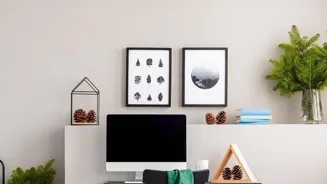Discover the serenity of a clutter-free life through minimalism. Dive into 7 practical tips for a tranquil home
In today's fast-paced world, many of us find ourselves surrounded by an overwhelming amount
of possessions. From clothes we no longer wear to gadgets we rarely use, our homes can quickly become cluttered and chaotic. This not only affects our living space but also our mental well-being.
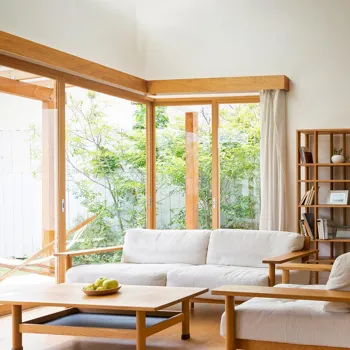
Minimalism, a lifestyle that emphasizes simplicity and intentionality, offers a refreshing alternative. By embracing minimalism, you can create a serene and clutter-free home that promotes peace, focus, and overall well-being.
It's about carefully choosing what adds value to your life and discarding the rest.
Ready to dive into the world of minimalist living? Here are seven practical tips to help you transform your home into a haven of calm and simplicity:
Start Small, Think Big:
Don't try to declutter your entire home in a single day. That's a recipe for overwhelm! Instead, begin with a small, manageable area like a drawer, a shelf, or a corner of a room. The kitchen counter is a good place to begin.
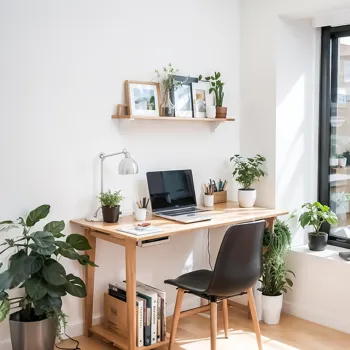
Completing this small task will give you a sense of accomplishment and motivate you to keep going. This initial success will fuel your minimalist journey and make the larger task feel less daunting. Set realistic goals.
Consider a '30-day Minimalism Game' where you get rid of one item on day one, two items on day two, and so on.
The KonMari Method – Sparking Joy:
The KonMari Method, popularized by Marie Kondo, is a powerful approach to decluttering. The heart of this method lies in asking yourself one simple question: "Does this item spark joy?" Hold each item in your hands, and genuinely feel its energy. If it brings you joy, keep it.
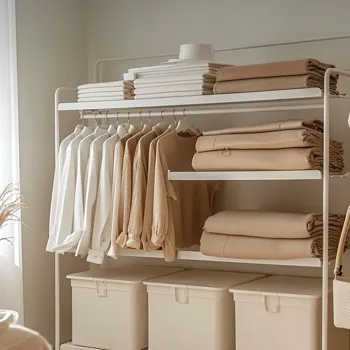
If it doesn't, thank it for its service and let it go. This method helps you to connect with your belongings on a deeper level, ensuring you're only surrounded by things that truly enhance your life. Remember, this includes items you keep 'just in case'.
If you haven't used it for a year or two and it doesn't bring you joy, it's time to say goodbye.
One In, One Out:
Adopt the "one in, one out" rule. This simple practice can prevent future clutter from accumulating. Every time you bring something new into your home, make sure to get rid of something similar. For example, if you buy a new shirt, donate or discard an old one.
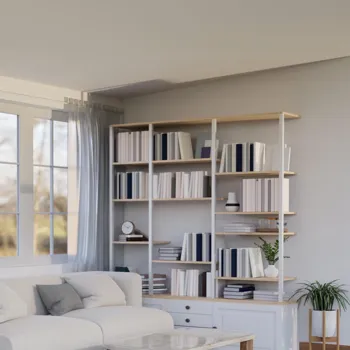
Or, if you buy new kitchen equipment, give away similar un-used equipment. This principle helps you maintain a balance and ensures that your home doesn't become overwhelmed with possessions again. This also encourages mindful consumption, making you think twice before buying something new.
And also consider, when you buy a new item, whether the old item can be fixed or repaired. Repairing is often better than replacing.
Decluttering Challenge Areas:
Certain areas of our homes tend to be clutter magnets – think the "junk drawer," the wardrobe, or the entryway. These areas require special attention. Dedicate time to completely empty these spaces and sort through every item. Be ruthless in deciding what to keep and what to discard.
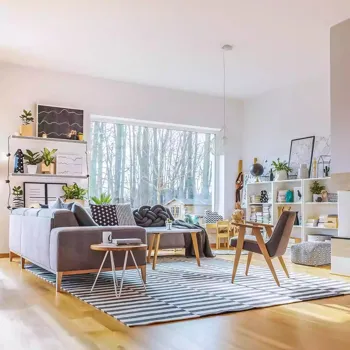
Organise these spaces with minimalist principles, it will make a huge difference in the overall sense of calm you feel in your home. For the wardrobe, try the hanger experiment: turn all your hangers backwards. As you wear clothes, turn the hanger the right way.
After a few months, you'll easily see what you don't wear.
Digital Decluttering:
Minimalism isn't just about physical possessions; it also applies to the digital world. Take some time to declutter your digital life. Delete unnecessary files, unsubscribe from unwanted emails, and organise your photos. A clutter-free digital space can reduce stress and improve focus.
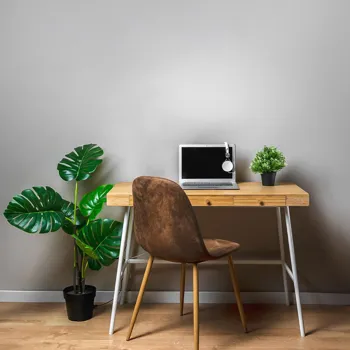
Consider using cloud storage to back up important files and free up space on your devices. Also, delete apps you rarely use on your phone. A clean and organised computer desktop can have a huge impact on your productivity and mental clarity.
Consider it as an extension of your physical living spaces.
Find a Home for everything:
Ensure that every item in your home has a designated place. When everything has a home, it's easier to put things away and prevent clutter from piling up. Invest in storage solutions like baskets, shelves, and containers to keep things organised.
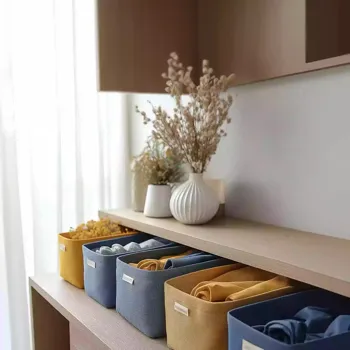
Make sure the storage solutions fit the overall aesthetic of your home. By keeping your home organized, your life will also be organized. If you do not have a specific space for the belongings. It is more likely the item is just placed randomly.
Take time to decide the best spot of belonging and be strict in placing the items on the pre-determined spots always.
The Power of "Good Enough":
In our consumer-driven society, there's always the temptation to buy the newest gadget or the latest fashion trend. Minimalism encourages us to appreciate what we already have and to resist the urge to constantly acquire more. Embrace the "good enough" mentality.
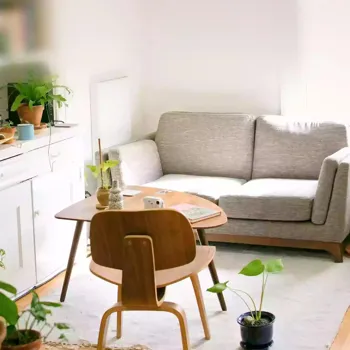
You don't need the most expensive or the most elaborate items to be happy. Often, simple and functional tools are all you need to live a fulfilling life. This mindset helps you to avoid the trap of consumerism and to focus on experiences over possessions. This also goes hand-in-hand with gratitude.
Take time to appreciate the items you already own.
By implementing these seven tips, you'll be well on your way to creating a minimalist home that promotes peace, simplicity, and a clutter-free life. Remember, minimalism is a journey, not a destination.
Be patient with yourself, and enjoy the process of transforming your home into a sanctuary of calm.
AI Generated Content. Glance/InMobi shall have no liability for the content